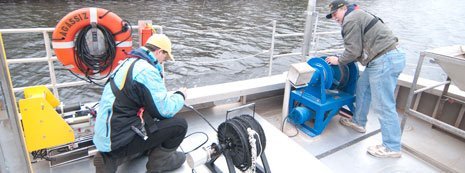Document Type
Article
Publication Date
12-19-2018
Abstract
In order to systematically study the rutting resistance performance of High-Modulus Asphalt Concrete (HMAC) pavements, a finite element method model of HMAC pavement was established using ABAQUS software. Based on the viscoelasticity theory of asphalt, the stress and deformation distribution characteristics of HMAC pavement were studied and compared to conventional asphalt pavement under moving loads. Then, the pavement temperature field model was established to study the temperature variation and the thermal stress in HMAC pavement. Finally, under the condition of continuous temperature variation, the creep behavior and permanent deformation of HMAC pavement were investigated. The results showed that under the action of moving loads, the strain and displacement generated in HMAC pavement were lower than those in conventional asphalt pavement. The upper surface layer was most obviously affected by outside air temperature, resulting in maximum thermal stress. Lastly, under the condition of continuous temperature change, HMAC pavement could greatly reduce the deformation of asphalt material in each surface layer compared to conventional asphalt pavement.
Publication Title
Applied Sciences
Creative Commons License

This work is licensed under a Creative Commons Attribution 4.0 International License.
Recommended Citation
Si, C.,
Chen, E.,
You, Z.,
Tian, R.,
Zhang, R.,
&
Gao, J.
(2018).
Dynamic response analysis of rutting resistance performance of high modulus asphalt concrete pavement.
Applied Sciences,
8(12).
http://doi.org/10.3390/app8122701
Retrieved from: https://digitalcommons.mtu.edu/cee-fp/59
Version
Publisher's PDF


Publisher's Statement
© 2018 by the authors. Article deposited here in compliance with publisher policies. Publisher's version of record: https://doi.org/10.3390/app8122701